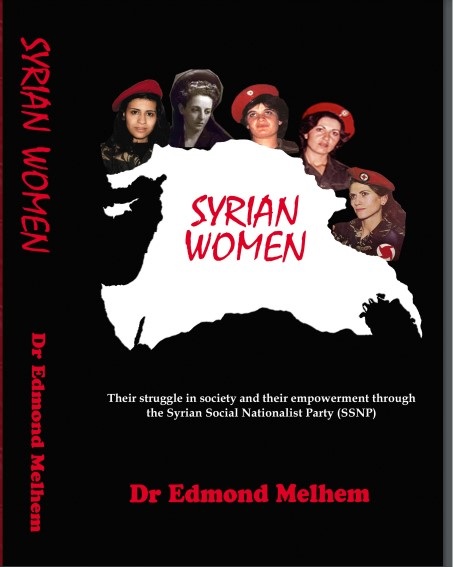Domestic violence is a serious and widespread problem in countries of the Arab world. The killing of women for illicit sexual contact out of marriage, or so-called ‘honour crimes’, is a form of domestic violence. Other forms of domestic violence are manifested in the suffering of women, from violent behaviour at home, in wife beating, and in all sorts of physical, sexual and psychological abuses by male relatives.
All around the world, some women are physically abused and beaten by their male partners and are supposed to tolerate violence. Sometimes they are brutally battered or murdered by male family members in the name of family honour. They are discouraged, if not forbidden, by traditions to reveal their abuse, which is considered a private family issue, not public knowledge. They are not even permitted “to inform other family members, or close friends and relatives about the problem because of the sanctity of the family.”[1] In many cases, they are blamed for being treated unjustly and battered by their husbands: “Only women who do not know how to manage their husbands get beaten”.[2] Thus, wife beating is perceived as “a ‘fault/deviance’ of women because they refuse to submit to their husbands’ wishes.”[3] It is not a problem in need of external intervention, but “a solution to the problem of women’s disobedience to their husbands.”[4] In Palestinian society, it is accepted that the husband, being the head of the family, beats his 'misbehaving' wife to teach her a lesson. A contemporary Arab writer has this to say on the subject matter:
It is permitted for the man to beat his wife if she disobeys him in bed, if she leaves the house without reason, if she refrains from applying cosmetics when he wants her to apply them, or if she neglects her religious duties.[5]
As some Palestinian women have reported, those wives who disobey their husbands’ orders, who leave the house without permission and who do not conform to their expected roles of being ideal wives and mothers should be beaten by their husbands to bring them back to order:
Of course a woman deserves to be beaten and sometimes she deserves to be killed if she does things wrong, like going out without telling her husband, or leaving her kids to play on the street or she does not keep her house. I mean if you come to her house and it is a mess, then she must be taught. Her husband must teach her how to do things right, he must talk to her, shout at her, and even, if she does not listen, he should hit her. Why not? If she can’t learn, maybe after getting some good slaps she might learn and become a better housewife and mother.[6]
Many incidents of domestic violence and sexual abuse against women, including incest and rape, remain unreported. Such practices are accepted and not challenged. Victims of domestic violence may not involve the legal system owing to ‘traditional’ societal attitudes and for fear of more abuse. Violence between intimate partners is viewed as normal behaviour or as a discrete family matter. The tendency to 'devalue' the deviant aspects of domestic violence and emphasize its 'normal' features is justified at times as being an action of love, as expressed in proverbs such as “beating a loved one is like eating sweets” (tharb al-habib, zbib).[7] At other times, it is justified as being a religious duty assigned by God to men for being guardians, protectors and maintainers of women. The Qur’an encourages differential treatment for the sexes. However, many of its verses allude to the fact that men and women are created as equal mates and are to treat each other with affection and compassion within the bonds of marriage. In verse 34 of Surat Al-Nissa, the Qur’an states:
Men are the protectors and maintainers of women because God has made one of them to excel the other... The righteous women will accept this arrangement obediently and honour their husbands in their absence, per God's commands. As for the women who show rebellion, you shall first enlighten them, and then desert them in bed, and you may beat them as a last resort. Once they obey you, you have no excuse to transgress against them. God is high and most powerful (Surat Al-Nissa, Verse 34).
To be continued
[1]Nadera Shalhoub-Kevorkian; Ahmad M. Baker, “Wife-Abuse in the Palestinian Society: A Social Phenomenon or a Social Problem?” in Arab Studies Quarterly (ASQ), Spring 1997, Vol. 19, No. 2, p 44.
[2]Ibid., p. 45.
[3]Ibid., p. 50.
[4]Ibid., p. 45.
[5] E. Haddad, “Palestinian Women: Pattern of Legitimation and Domination” in K. Nakleh and E. Zureik (eds.), Sociology of the Palestinians, New York: St. Martin’s Press, 1980, p. 150.
[6]Jamileh Abu-Duhou, Giving voices to the voiceless: Gender-Based Violence in the Occupied Palestinian Territories, op. cit., p. 137.
[7]Nadera Shalhoub-Kevorkian; Ahmad M. Baker, “Wife-Abuse in the Palestinian Society: A Social Phenomenon or a Social Problem?” op. cit., p 44.

